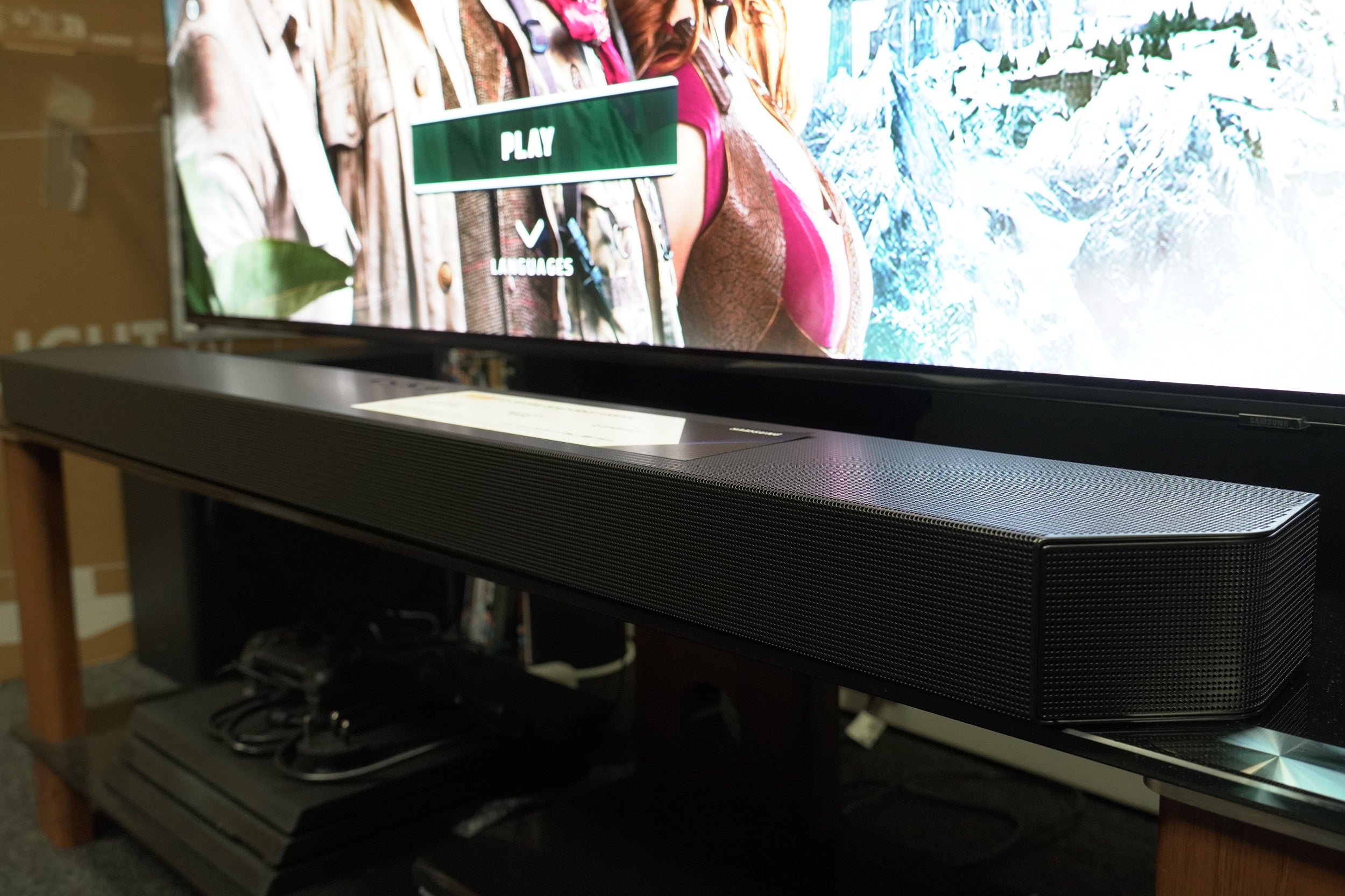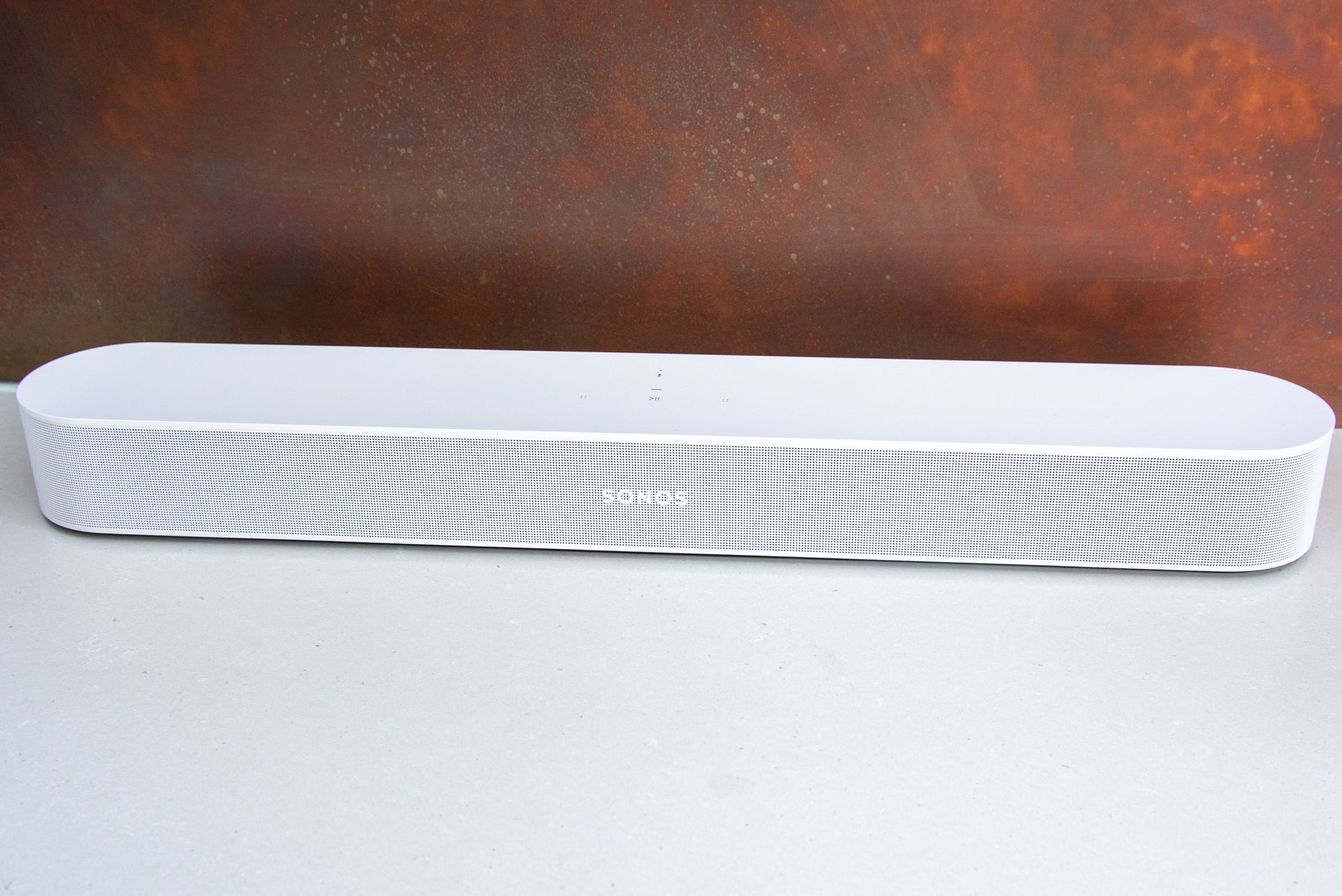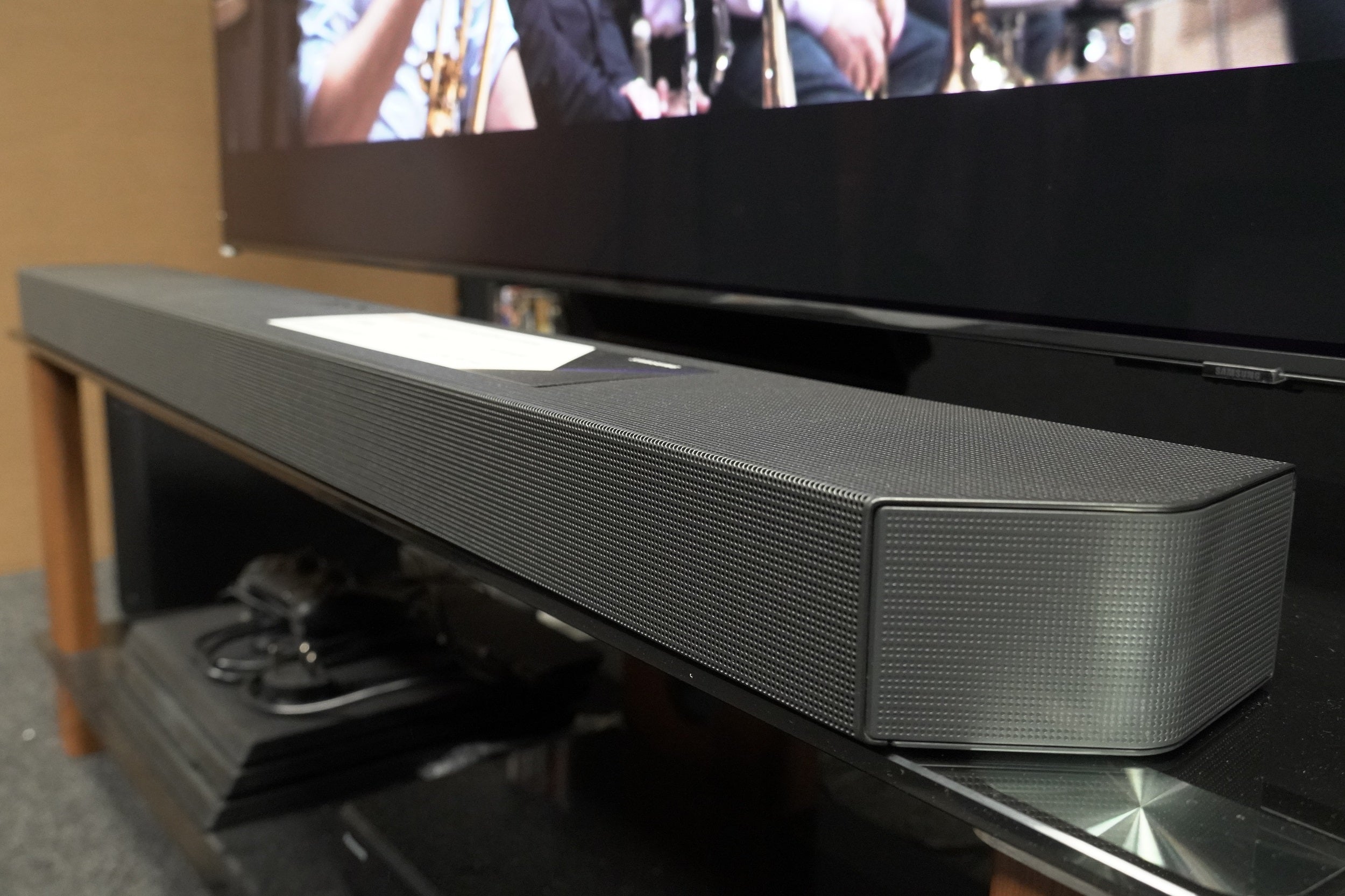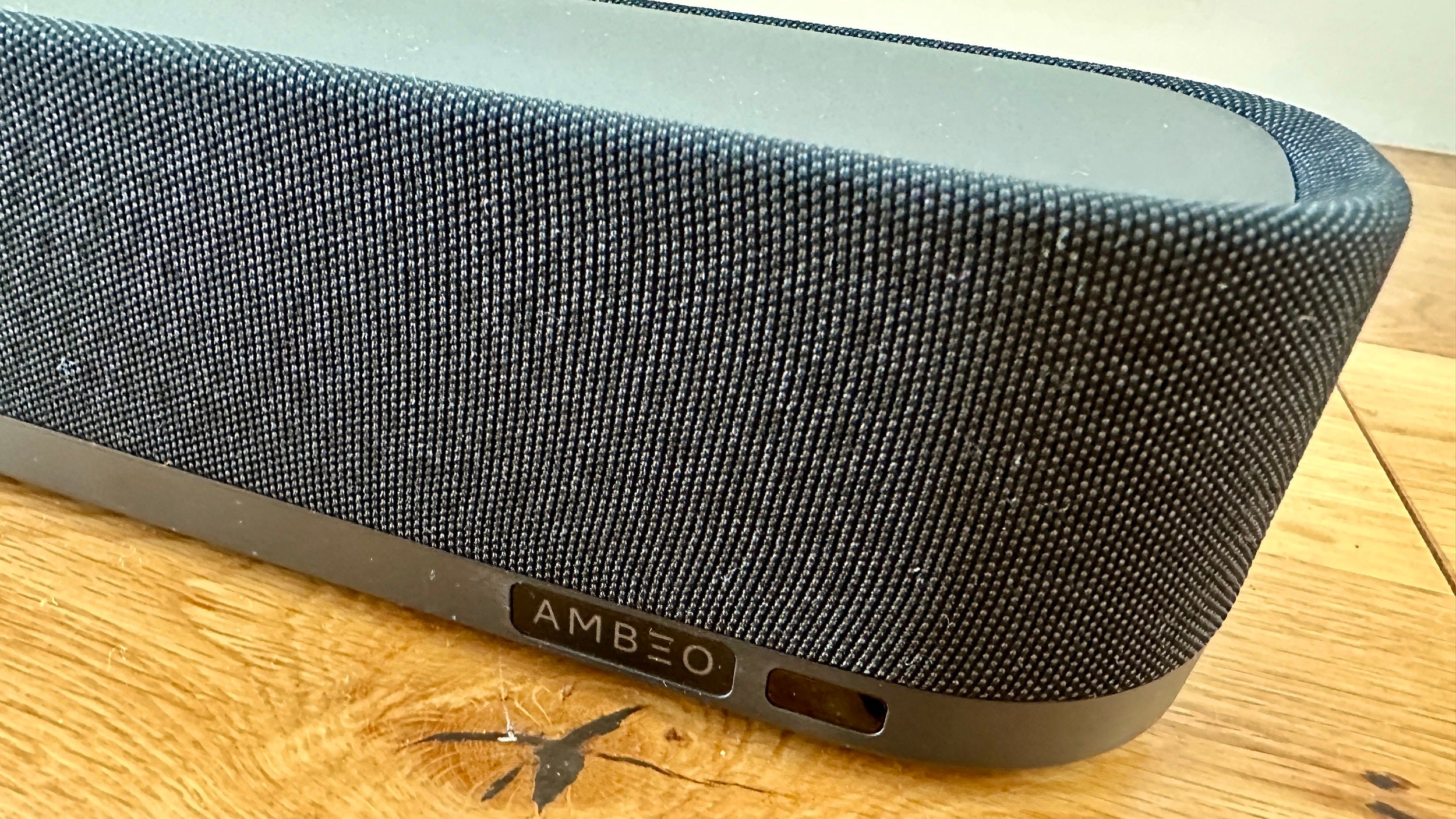Sonos Sub Mini Review
Better bass for the smaller Sonos speakers
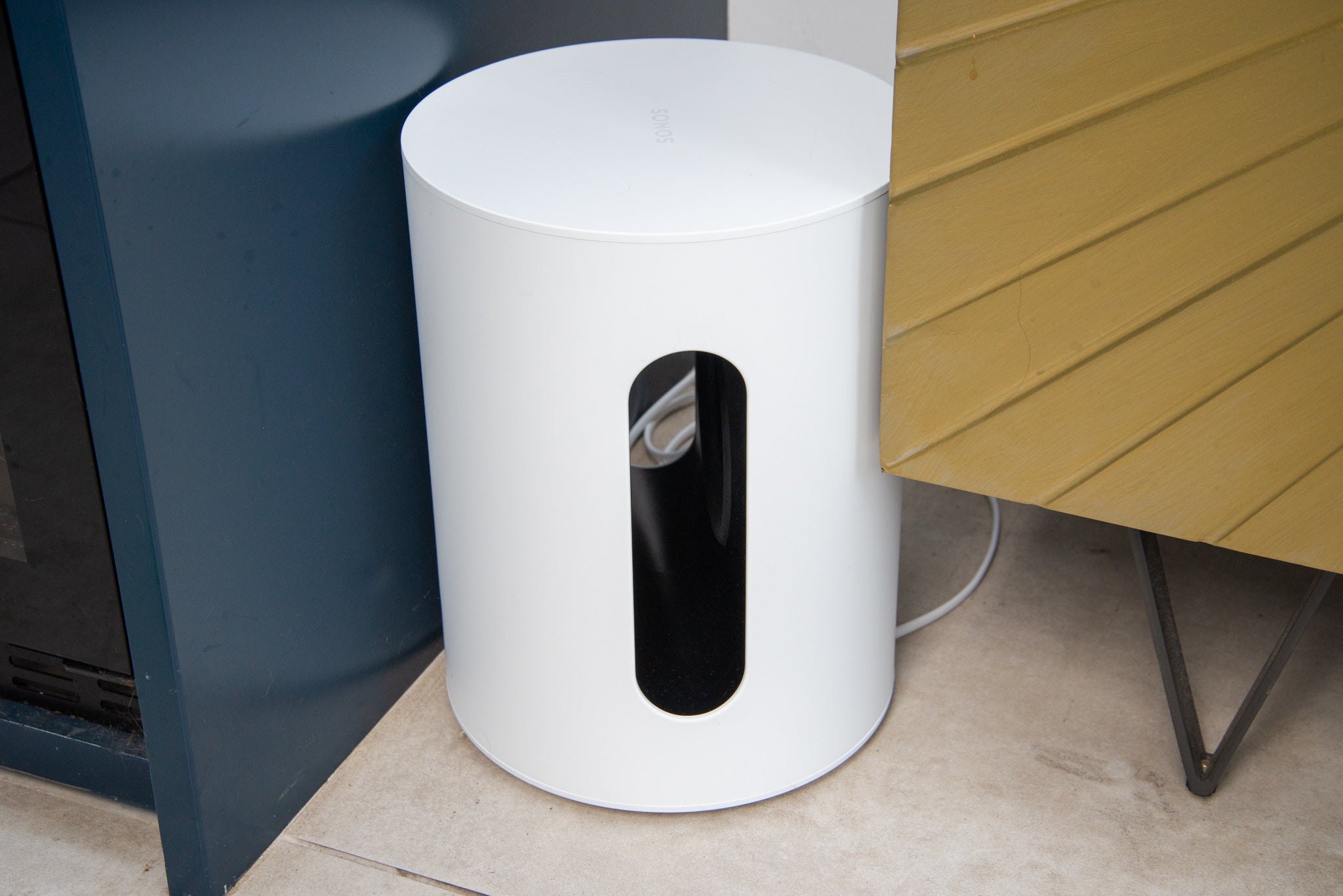
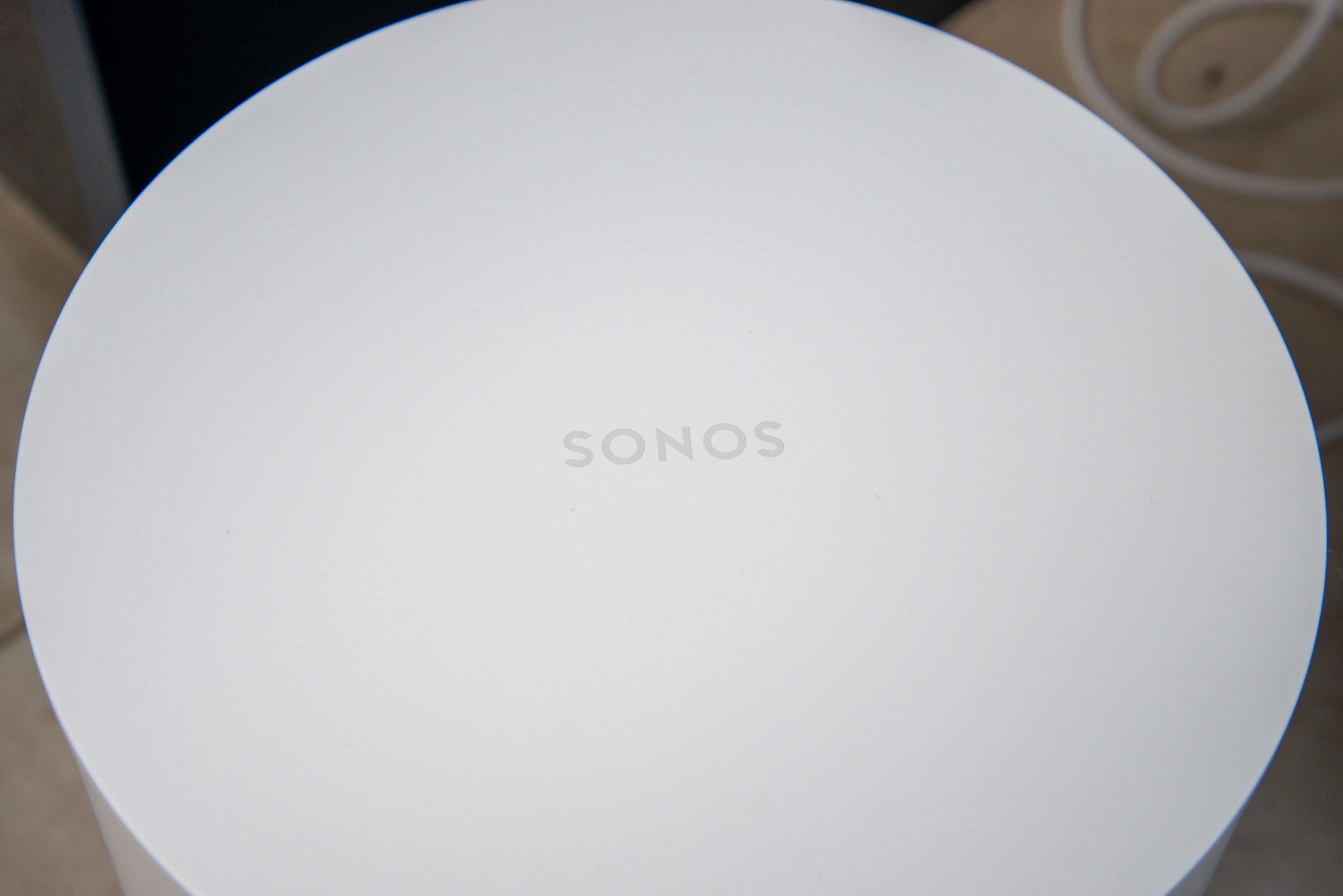
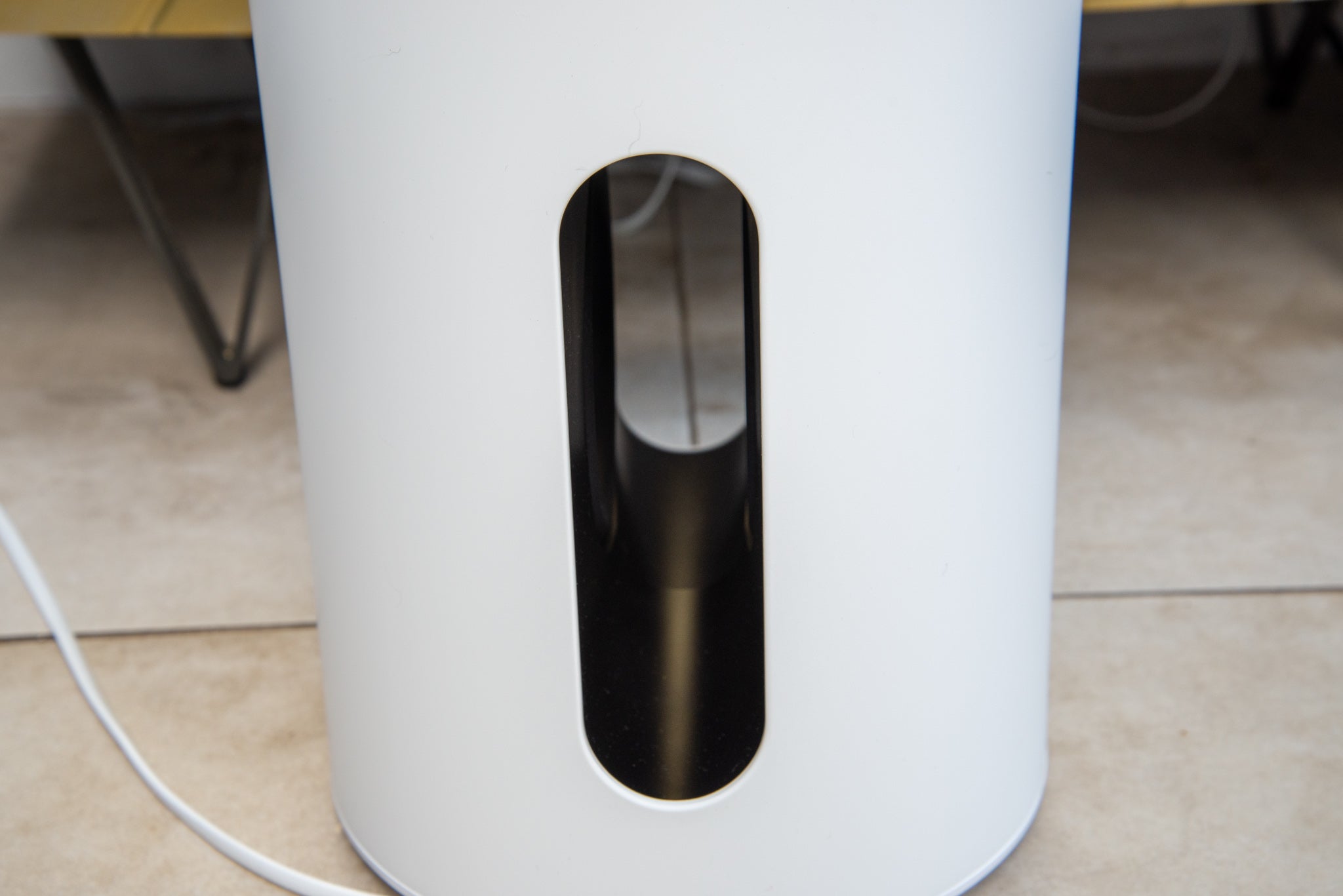
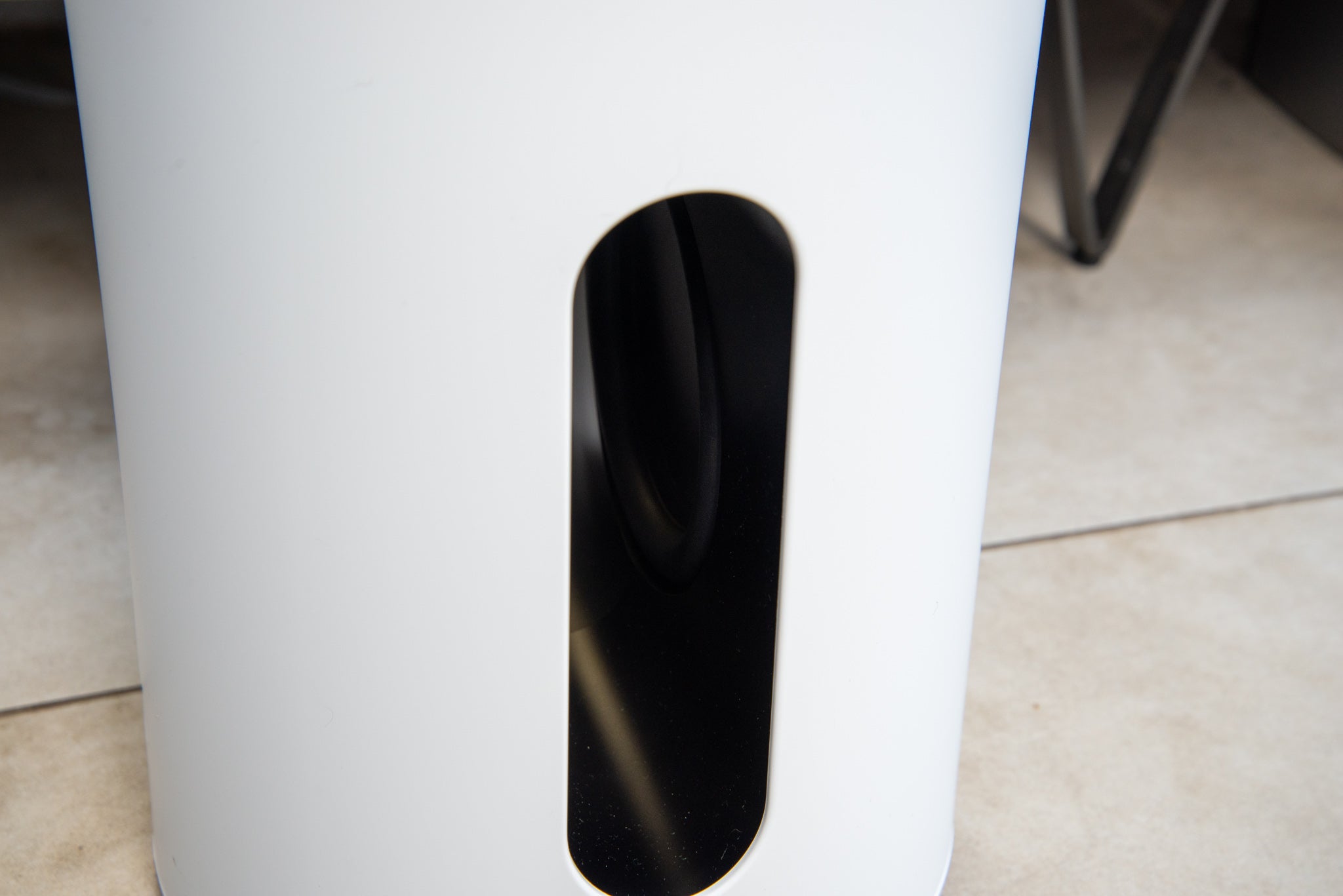

Verdict
Smaller and less expensive than the Sub Gen 3, the Sonos Sub Mini is designed to work with the smaller speakers and soundbars. It improves the sound quality of any Sonos speaker it’s paired with, delivering greater range and more bass, while avoiding becoming too boomy or dominating. In many ways it’s the perfect upgrade, but it’s a lot more expensive than many of the speakers it would be paired with, which could make this a hard purchase to justify.
Pros
- Improves existing speakers
- No case vibration
- Excellent and balanced bass
Cons
- Expensive
Availability
- UKRRP: £429
- USARRP: $429
- EuropeRRP: €429
Introduction
Rumours abounded for years about a smaller Sonos subwoofer, but launch after launch nothing new was announced, and we were left with the original, expensive Sonos Sub. With the Sonos Sub Mini there’s now an option for smaller rooms.
It’s a smaller, less expensive (but I wouldn’t say cheap) subwoofer that integrates with practically every speaker in the Sonos range, from soundbars to standalone players, delivering that extra low-frequency hit without ever becoming overpowering.
Design
- Cylindrical body
- Must stand upright
- Just needs a power plug
The original Sonos Sub is something of a design icon, and the Sub Mini is clearly related although it has a style of its own. Available in black or white, the subwoofer comes in a small cylindrical body that’s not much bigger than a wastepaper basket.

In the middle, there’s the familiar cutout that first appeared with original Sub. Inside are the two low-frequency speakers facing each other, to cancel out case vibration (more on that later).
Although it’s physically small (305 x 230 x 230mm), the Sub Mini is a solid chunk of speaker, weighing a hefty 6.35kg. It took a bit of brute force to lift it out of the box and stand it on the floor.
While the new cylindrical body looks great, the Sub Mini does miss one trick: it can’t be laid horizontally and slid out of the way, such as underneath a sofa. I loved that design feature about the original as, while it was arguably the most attractive subwoofer, it was also designed so it could be placed out of sight. With the Sub Mini, you’ll have to accept that it will take up some floor space.
There’s an Ethernet port underneath, although for most setups you can go wireless, and just connect the solitary power lead.
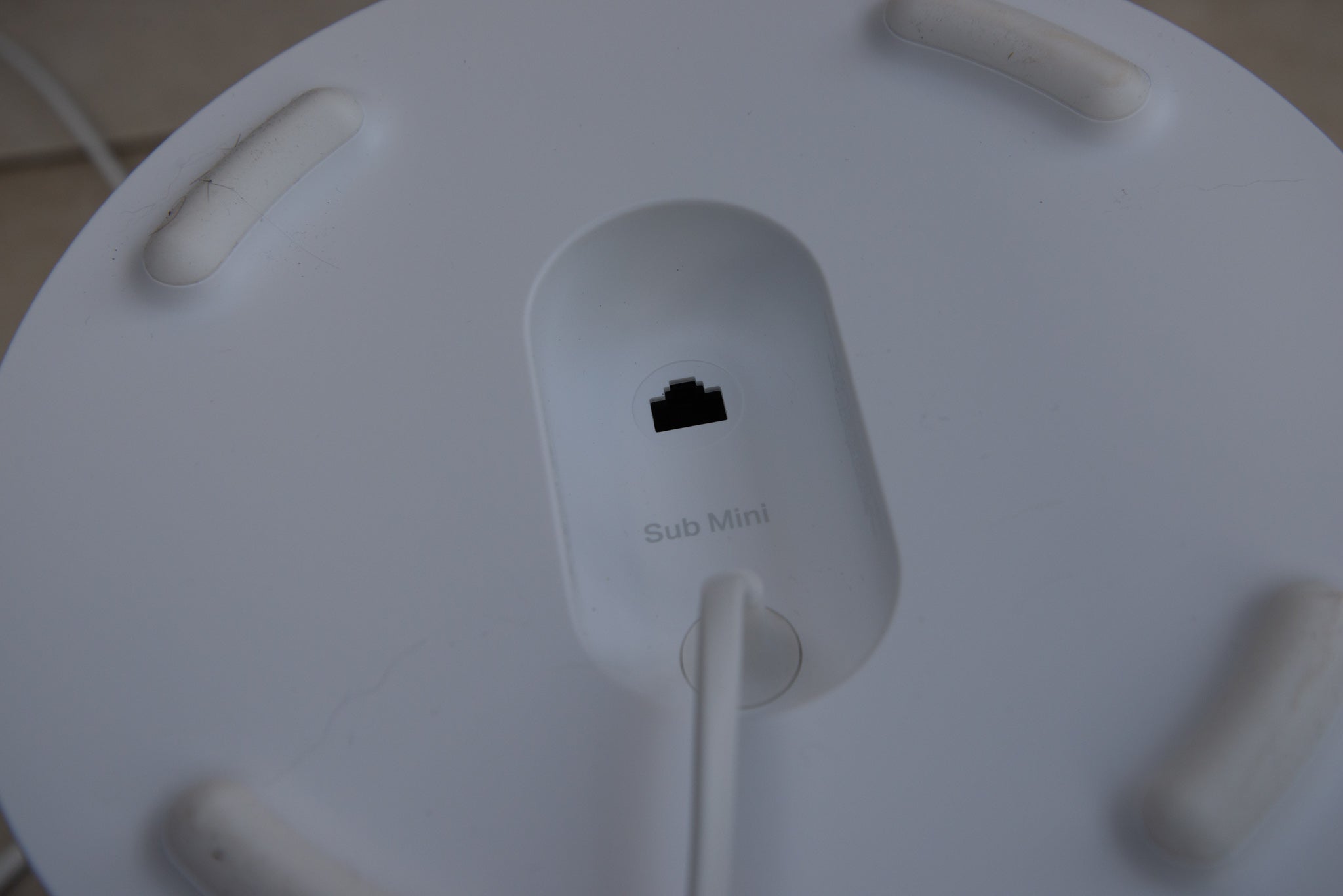
Features
- Seamlessly connects to S2 systems
- Pairs automatically with wireless players
- Crossover can be finetuned for use with the amp
Setting the speaker up couldn’t be easier. Plug it in, open the Sonos app and tap the pop-up telling you you’ve got a Sub Mini to set up, and then follow the setup routine, which uses NFC to pair the speaker to your Sonos system. If your phone doesn’t have NFC there’s an old-fashioned connect button on the side of the speaker.
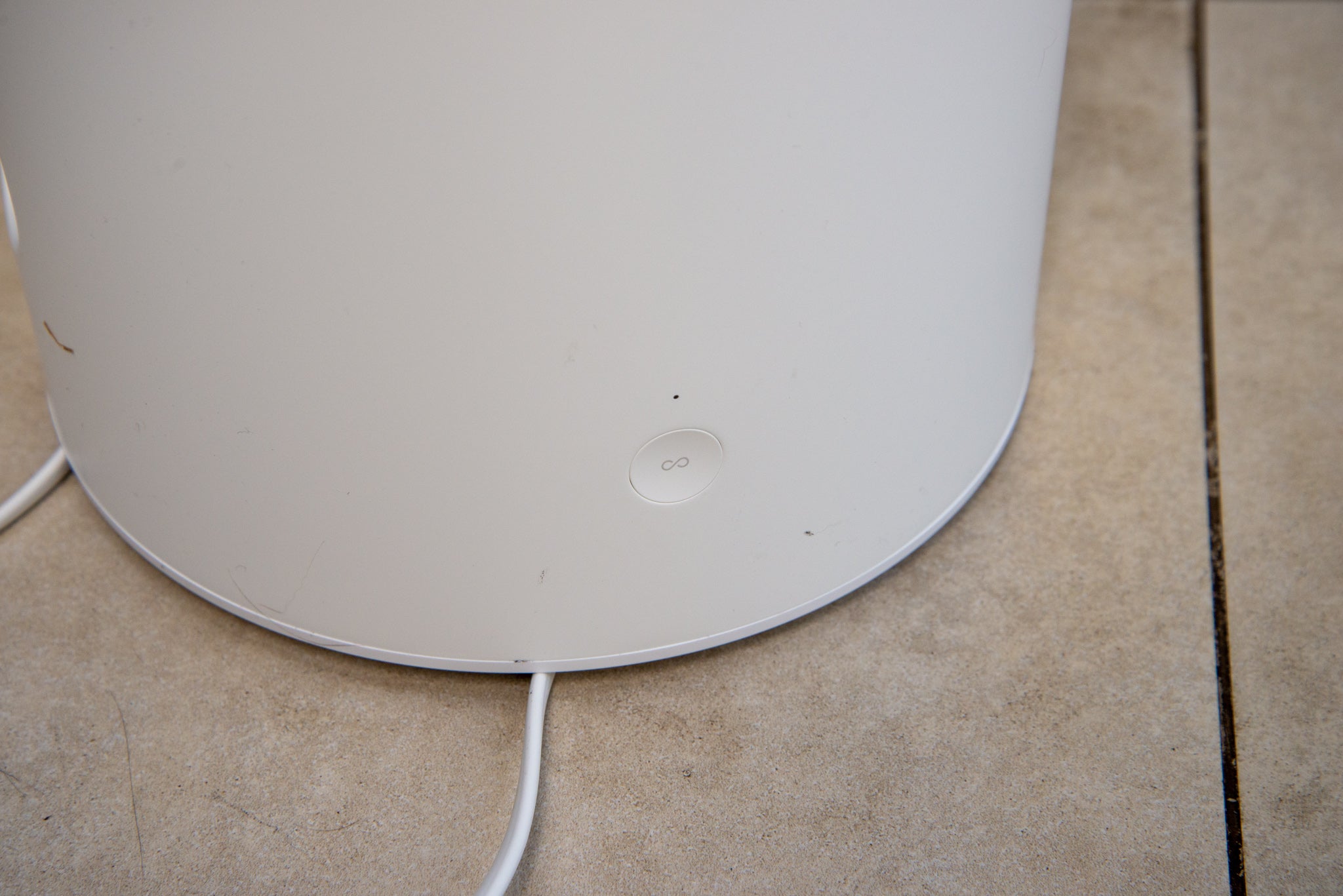
Once the speaker has been added and updated, there’s an extra step: pairing it with an existing wireless speaker. The Sonos Sub Mini will work with any S2 wireless speaker, bar the portable ones, such as the Sonos Roam.
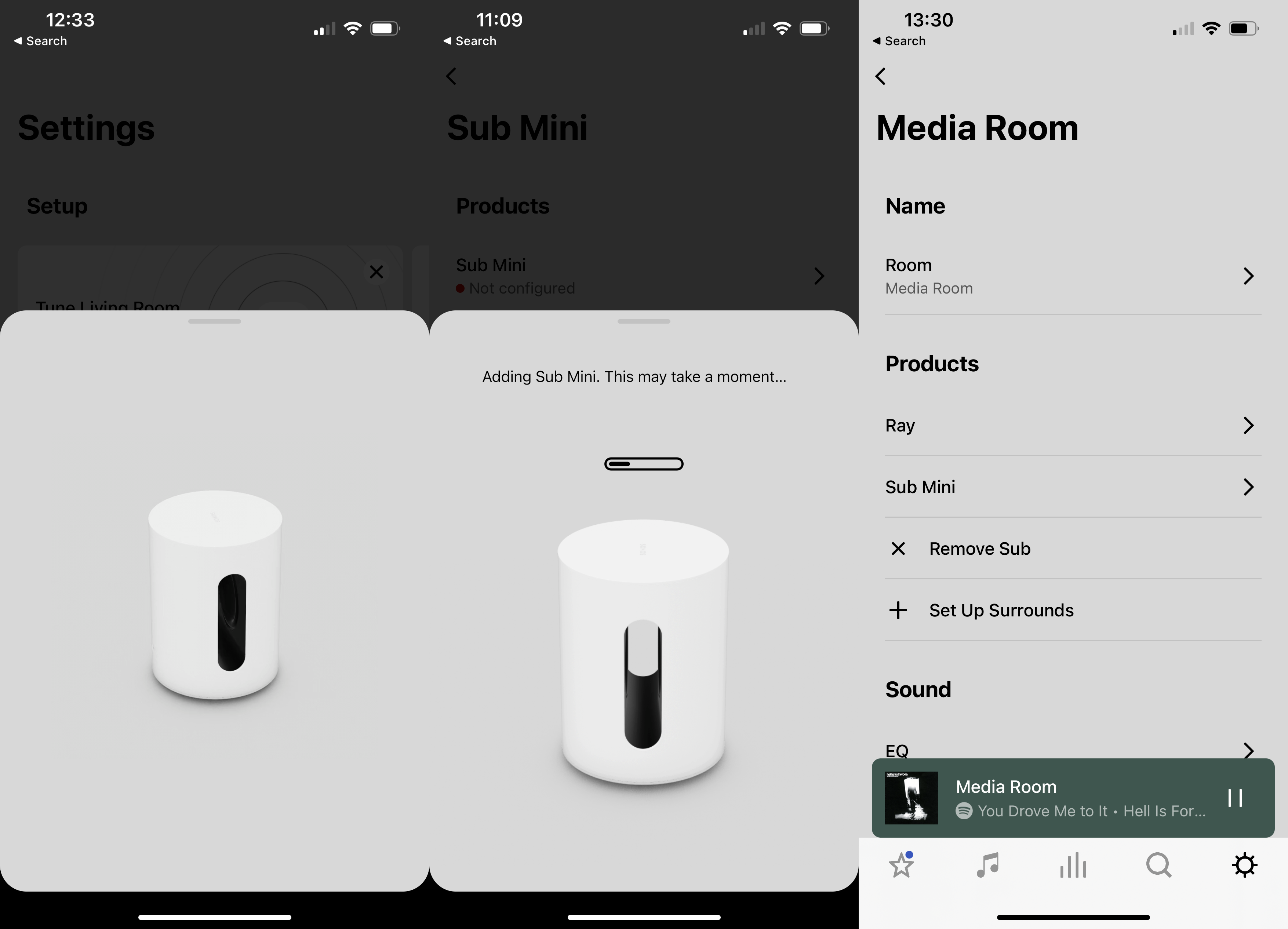
It can work with a single speaker, such as the One SL or Sonos Ray, but it can also work with stereo pairs or with a soundbar, where you’ve added rear speakers, such as with the Beam (Gen 2).
Although the Sub Mini has the same 25Hz low frequency as its big brother, Sonos recommends that it’s used in smaller rooms and with smaller speakers. Soundbar-wise, that’s the Beam (Gen 2), assuming a smaller room, and the Ray; the original Sub is recommended for the Arc, although if you have the Arc in quite a small room, the Sub Mini will work with it.
For the speakers, the One SL and One (single or stereo pair), and Ikea Symfonisk speakers are recommended; the original Sub is the better choice for the Five.
When pairing with most of its speakers, Sonos already knows the correct crossover frequency to pick, so configures everything automatically. If you’re using the Sonos Amp, there’s a crossover control slider. This is set at 80Hz by default, but you can adjust this if you notice a gap in the audio.
With all speakers, the sub’s level can be adjusted manually, boosting the speaker’s impact or dialling it back. Of course, you can use TruePlay to automatically calibrate your speaker and Sub Mini for your room.
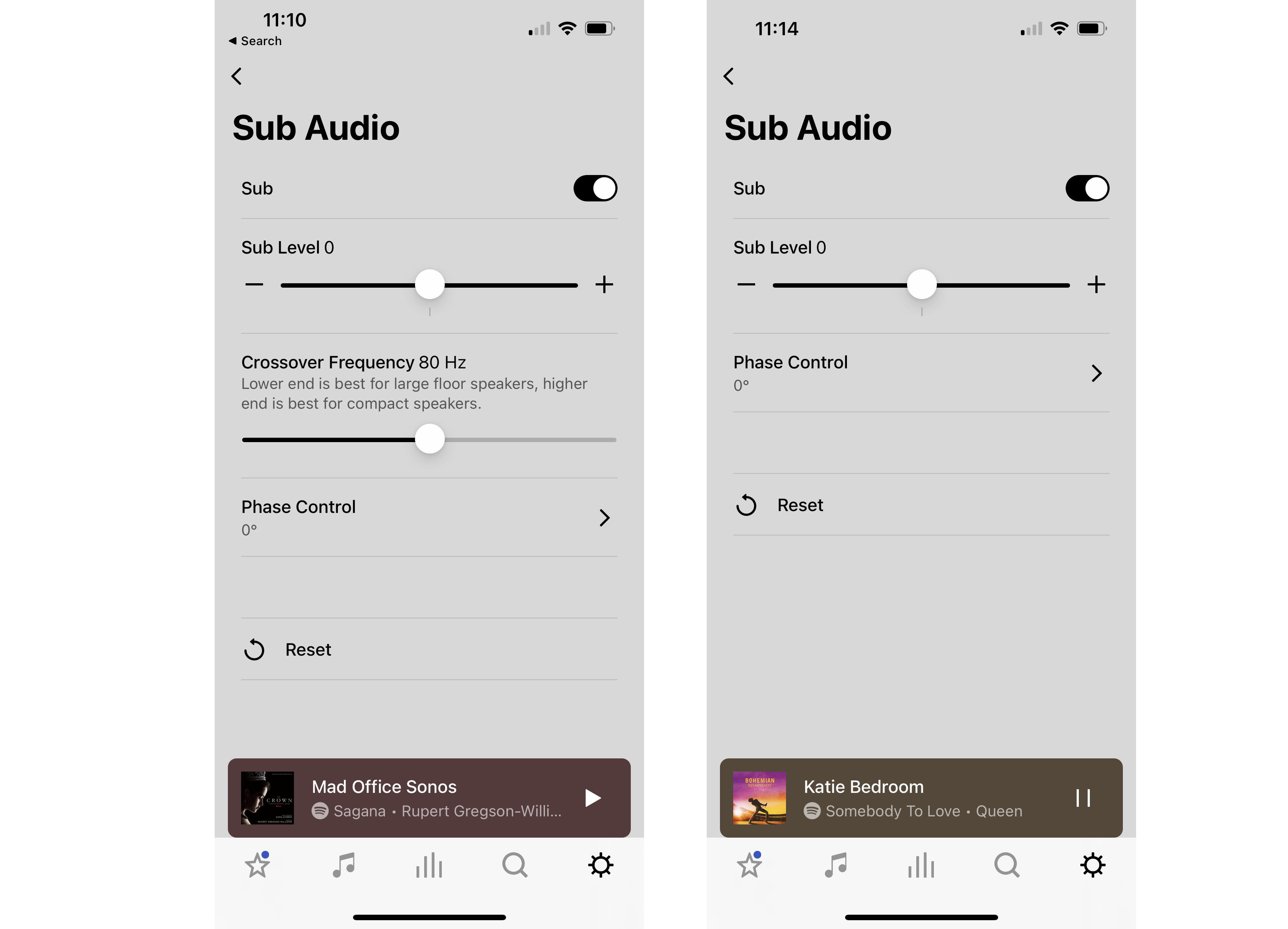
Internally, there are two Class D amplifiers driving the two 6-inch woofers. These face each other, delivering a force-cancelling effect that produces bass without distortion or case vibration. It works, too: I could have put a full glass of water on top of the subwoofer without fear of it being shaken off.
Sound Quality
- Nicely balanced
- Adds warmth without adding boom
The trick with a subwoofer is getting the balance and poise right, and that’s what Sub Mini manages to do. I tested it with a pair of Sonos One SL and the Sonos Ray, and was impressed with the results with both.
In general, I found it’s not what the Sonos Sub Mini adds; it’s what you miss when it’s not there. That is, the Sub Mini ties in so well with its paired speakers, that it’s hard to isolate exactly what the subwoofer is doing.
That’s how things should be: a subwoofer shouldn’t be directional, and it shouldn’t be boomy, dominating a soundtrack.

Toggling the Sub Mini on and off, it was clear that it was adding that extra hit of low-frequency action, bringing warmth and a greater range to practically every track. Play a bass-heavy track, such as OK Go’s This Too Shall Pass, and a single speaker can distort and sound harsh; with the Sub Mini in the mix, the track has more impact and sounds cleaner.
With a track that’s less bass-heavy, such as Simon and Garfunkel’s The Sound of Silence, the Sub Mini’s impact is less obvious, but it does bring out some additional warmth.
I originally had a pair of One SL speakers paired with an original Sonos Sub. It’s a heady combination, but the original Sub can be quite boomy and dominating, to the point where I had to turn it down a little.

The Sonos Sub Mini is arguably a better pairing: it frees up the One SL speakers to focus on the mid-range while it takes care of the bass, delivering a richer and more expansive soundscape, without the bass dominating. Simply put, it makes the other speakers sound better.
Moving to the Sonos Ray, and the Sub Mini takes away some of the brightness in music, creating a fuller sound range. It vastly improves films, too. Watching the final battle in Avengers: Endgame and everything sounds better. There’s more impact to the punches and explosions.
Crucially, the Sub Mini doesn’t dominate: it blends in and improves, working with the speakers that it’s paired with.
Latest deals
Should you buy it?
If you want extra range from your Sonos speakers
If you’re after deeper bass, this subwoofer improves the speakers that it’s paired with.
It is an expensive add-on
It costs more than the majority of speakers you’d pair it with, which can make it a hard purchase to justify.
Final Thoughts
For smaller rooms and speakers, the Sonos Sub Mini is a much better pairing than the original Sub. This new subwoofer improves dynamic range, and makes the speakers its paired with sound better, all without dominating with boomy bass.
It will work with the larger products, too, although the impact on a product such as the Sonos Arc is less noticeable, and that’s a soundbar that either doesn’t need a subwoofer or, for larger rooms, should be paired with the Sonos Sub.
Price is the biggest issue with this speaker: sure, it makes the Sonos Ray sound considerably better, but the subwoofer’s RRP is more than that soundbar on its own. I think that could be a hard sell in a lot of cases, and it may be that this works out as a speaker that’s bought more for the Sonos Beam (Gen 2).
I think it works brilliantly with a pair of One SL speakers, too: sure, it’s an expensive setup, but you get proper stereo separation and deep bass as a result. If you’ve got the cash, the Sub Mini is a great add-on, but many may find it hard to justify.
How we test
We test every subwoofer we review thoroughly over an extended period of time. We use industry standard tests to compare features properly. We’ll always tell you what we find. We never, ever, accept money to review a product.
Find out more about how we test in our ethics policy.
Tested with music and films
Tested with real world use
FAQs
Yes, it adds improved low-frequency response and allows the paired speakers to focus on the mid-range and high end.
Any S2 product bar the battery-powered models.


